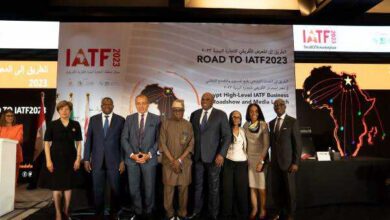Challenges of CBN’s electronic invoicing, valuation of imports, exports

• Customs differ on benchmark pricing
The Central Bank of Nigeria (CBN) released the guidelines for the newly introduced electronic invoicing and valuation of imports and export on January 21, 2022.
It stressed that the new policy was aimed at determining the accurate value of goods leaving and coming into the country. But manufacturers, importers, and exporters are protesting against the new policy, saying it is capable of stifling businesses, just as it negates the agreements the country had signed with various international organisations, JOHNMARK UKOKO writes.
The Central Bank of Nigeria (CBN) released the guidelines for the newly introduced electronic invoicing and valuation tagged: E-invoicing and e-valuator on January 21, 2022, insisting that the new policy was aimed at determining the accurate value of exports and imports in the country.
It maintained that the electronic process would replace the hard copy that was hitherto in use, adding that henceforth, bankers of the importers and exporters must authenticate all invoices of their transactions, The Trumpet gathered.
The policy, which took effect on February 1, 2022, despite stakeholders’ complaints, was meant to ensure that all required import and export operations would now require electronic validation of invoices by the authorised dealer banks on the Nigeria single-window portal-trade monitoring system.
The CBN also stressed that the new registration was primarily aimed at achieving accurate value from import and export items in and out of the country, as no importer or exporter would be able to effect payment to the credit of any foreign supplier unless the electronic invoice had been authenticated by authorised dealer’s banks presented with the relevant documents for payment.
It placed a yearly subscription fee of $350 as a charge for authentication of suppliers on the system. But exporters, importers and manufacturers have tagged the new guidelines for import and export as ‘anti-people policy’.
The Trumpet learnt that several petitions have been sent to the National Assembly as the CBN’s guidelines continue to cause controversy in the system.
Speaking with journalists recently on the issue, President of the Manufacturers Association of Nigeria (MAN), Mansur Ahmed, said the country’s manufacturers have a lot of issues with the policy.
He noted that the association was discussing with the CBN to address the issues so far highlighted, noting that despite the reasons the apex bank adduced for introducing the policy, there are many areas members of MAN feel the CBN should rejig to address their concerns.
“The Central Bank has told us the reasons that necessitated the introduction of the policy and we have raised some of our issues with the policy.
I believe that the bank will do the needful to address our concerns,” he stated.
Also, the National Vice President, Association of Nigerian Licensed Customs Agents (ANLCA), Kayode Farinto, while addressing the House of Representatives Committee on Customs and Excise, Banking and Currency, regarding the policy in addition to duty tax calculations on import cargoes, stressed that the Technical Barriers of Trade (TBT) agreement was aimed at ensuring the elimination of unnecessary trade barriers.
In his words: “The TBT agreement strongly encourages member counties to base their measures on international standards as a means to facilitate trade through its transparency provisions.
“The e-invoice will only achieve ‘benchmarking’ of goods, thereby failing to create a healthy and enabling environment for trade to thrive.”
He stated that instead of the CBN implementing monetary policies aimed at strengthening the Naira, it was more interested in dabbling into physical matters.
“The Central Bank begins with issuing Forex Exchange prohibition lists for over 80 items, which are not under import prohibition list and this directive led to situations where the various commercial banks refused to open Forms M for Nigerian traders and importers, except very few privileged traders that can produce waiver letters from the CBN.
This also caused serious issues in our import and export documentation,” he added.
Farinto alleged that some local importers out of frustration have resorted to false declarations of imports thereby affecting the level of compliance and reduction in revenue that ought to accrue into the federation account.
He further alleged that some of the commercial banks have begun to extort the innocent importers to apply for waiver approval, even when these importers have gotten the Forex from the black market.
Farinto added that the issue of false declaration has now become a norm in people’s daily lives, which he said, was negatively affecting the level of compliance.
“Furthermore, the CBN also introduced a Product Price Verification Mechanism (PPVM) to forestall over-invoicing or mispricing of goods and services imported into the country. The CBN directed all authorised dealers to verify quoted prices before Forms M are approved,” he added.
Read Also: Army Deepens Civil-Military Relations, Sites Boreholes, Street lights in Lagos Community
The ANCLA boss argued that the new policy would leave the country isolated among the comity of nations, adding that the CBN, by virtue of amended Act 7 of 2007, was misinterpreting section 2 sub-section 2 sub-sections (a-e) where sub-section 2 (a) states that CBN shall enforce monetary and price stability to dabble into issues affecting importation, which is under the purview of fiscal policies.
“We need to restate that the issue of fiscal policies and monetary policies are very clear and unambiguous on which agencies should be responsible, The Trumpet gathered.
The Federal Ministry of Finance should be responsible for implementing fiscal policies through the Nigeria Customs Service (NCS), while CBN should implement monetary policies,” he stressed.
He added that the CBN was in the habit of encroaching into the Nigeria Customs Service statutory role.
He said the World Trade Organisation (WTO) general article domesticated in Nigeria as valuation Act 20 of 2003 clearly stipulates how prices could be determined for importation purposes under six principles which are the transaction value of goods, transaction values of identical goods, transaction value of similar goods, deductive value method, computed value method and fall back method.
Respondents appealed to the House of Representatives Committee on Customs and Excise, Banking and Currency to thoroughly think through the policy, review the petitions before it and arrive at the right decisions that would impact positively on the country’s economy.
Management of the CBN, manufacturers, importers, exporters and members of the House of Representatives committees owe the country an obligation to do the right things for the country’s economy.
Respondents added that stakeholders have ample time to take the right decisions, alleging that the CBN has been stepping out of its bounds by encroaching into the territory of other Federal Government’s agencies.
If the allegation is true, the question is why has the Ministry of Finance, being the supervisory ministry of the CBN, not called it to order all along?
The months ahead will determine if the new policy would achieve its set objectives or will simply end up as one of CBN’s several policies that their introduction promised much, but ended up not achieving their objectives.
Also, the Nigeria Customs Service (NCS) has rejected CBN’s e-valuator and e-invoicing for import and export businesses in the country.
The service debunked insinuations that it had maintained a common understanding with the CBN on the policy seeking to benchmark the price of imported and exported cargo.
In a letter dated July 8, 2021, the CBN had informed the NCS that it was deploying a mechanism for verification of prices of goods before allocation of forex at the point of registering Form M electronically.
But in a statement issued by its National Public Relations Officer (PRO), Timi Bomodi, yesterday, the NCS said it still stood by its earlier submissions on the matter, as was communicated to the House of Representatives Joint Committee on Customs and Excise, Banking and Currencies on March 3, 2022.
Bomodi stated that the NCS, as a government agency, aligned with the WTO Agreement on Customs Valuation (ACV), as it aims for fair, uniform and neutral system for the valuation of goods for Customs purposes, which conforms to commercial realities and outlaws the use of assumed values for customs purposes.




